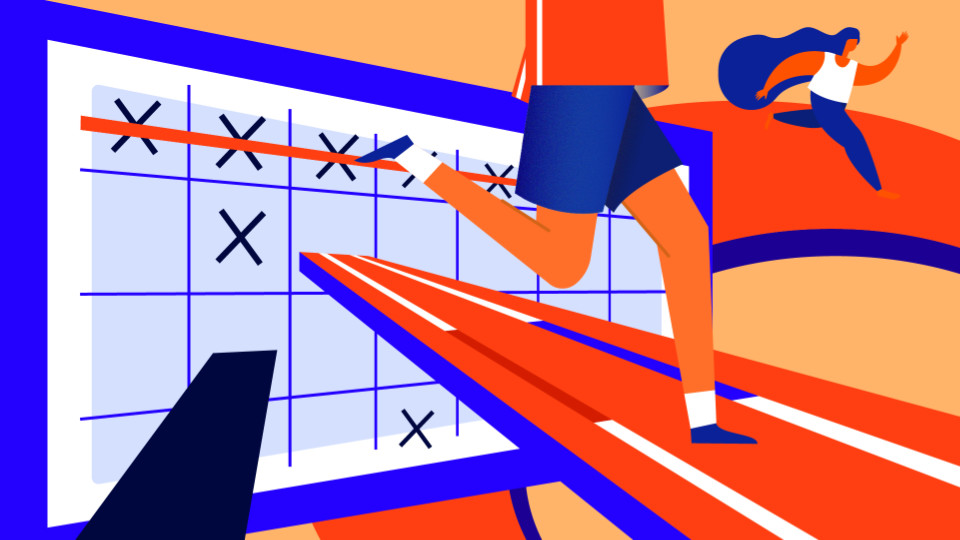While runners are discovering new coping mechanisms to the Coronavirus virus that continues to hold the world hostage, CNN’s Allen Kim reports that running is “enjoying a boom,” because gyms and fitness facilities are closed. Is this a pipe dream or are runners more resilient than we give them credit for?
Avid runners are taking advantage of milder weather and the sparsity of humanity that has resulted from “shelter-at-home” mandates that have literally handed over parks and streets to passionate runners.
In fact, one of the few things sequestered people around the world can do to stay fit is to run, a major reason websites devoted to initiating never-before runners to the art and science of the sport are getting record hits.
Today’s runner respects the rules
Just because major cities and towns are closed to populaces, that doesn’t mean rules are being thrown out the window. Respectful runners are finding ways to practice social distancing while getting in their miles and making creative moves to avoid getting close to the people they encounter along the way.
An entire classification of mask designs just for runners has appeared on the fashion horizon and few things are more capable of offsetting stressors associated with sheltering in place than a good run.
Staircases are getting to be popular ways to get exercise and indoor workout equipment sales are at an all-time high.
Uncertainty is driving anxiety
According to Scott Douglas, the international running community is on pins and needles waiting for some semblance of normalcy to be declared that will pave the way for upcoming marathons and events.
Some have been postponed to later in 2020 while early-in-the-year events never got off the ground.
Global impatience—a universal need to know “when” things are going to get back to normal—adds to anxiety. The bigger the event and the more people must travel to get to races, the higher the danger of spreading infection, says Stephen Morse, Ph.D., an epidemiologist at Columbia University.
Between practicality and desire
As the world slowly begins to relax the rules and regulations imposed by Coronavirus, members of the running community wonder about their own timelines.
Returning to racing won’t happen overnight. “We’re going to prepare like [our race] is going to happen on November 21,” said Mike Spinnler, director of Maryland’s annual JFK 50 mile run. New York City Marathon spokesperson Chris Weiller also continues to be optimistic.
Race organisers are expected to take cues from governments before allowing racers to queue in tight spaces like registration and start lines once social distancing rules are relaxed.
Obviously, weather will play a part. A June race put off until December in northern climates presents its own set of problems.

Changes runners may see down the road
- A significant drop of races as more organisers go out of business.
- Registration numbers for running events may be capped at fewer participants.
- Race packs pickup may switched to home delivery.
- Participants may have to submit to temperature readings before they can run.
- Look for new start rules. Maintaining 2-metre distances may not be possible.
- Lanes for relay racing could be widened to add space between runners.
- Rolling race starts are likely to be favored.
- As economy recover from slowdown, race entry ticket price might go up as organiser tries to make up for the loss of income.
- Until parents let kids run in public, fun runs could fall victim to the virus.
- The amount of space aid stations are allocated will be expanded to thin crowds.
- Grabbing cups from volunteers is likely to be replaced by sealed bottled water.
- Events may enforce runners to bring their own water.
- Inexperienced organisers could run shoddy events, impacting the sports’ reputation.
- Organisers will have to find new ways to retain runners’ trust after non-refundable and cancelled events.
- Post-race celebratory festivals could be toned down or eliminated.
- Solo running, already a sport promoting social distancing, will remain popular.
- Look for masks more efficient at trapping respiratory waste exuded by runners.
Bottom line, says Benjamin Cowling, professor of epidemiology and biostatistics at the University of Hong Kong:
“I think relatively little Covid-19 transmission would occur outdoors, except perhaps in large crowds.”
If this proves true, running events as you know them may change, but the sport will never lose its popularity.
How confident are you that running outside wearing a mask will protect you from the virus?




